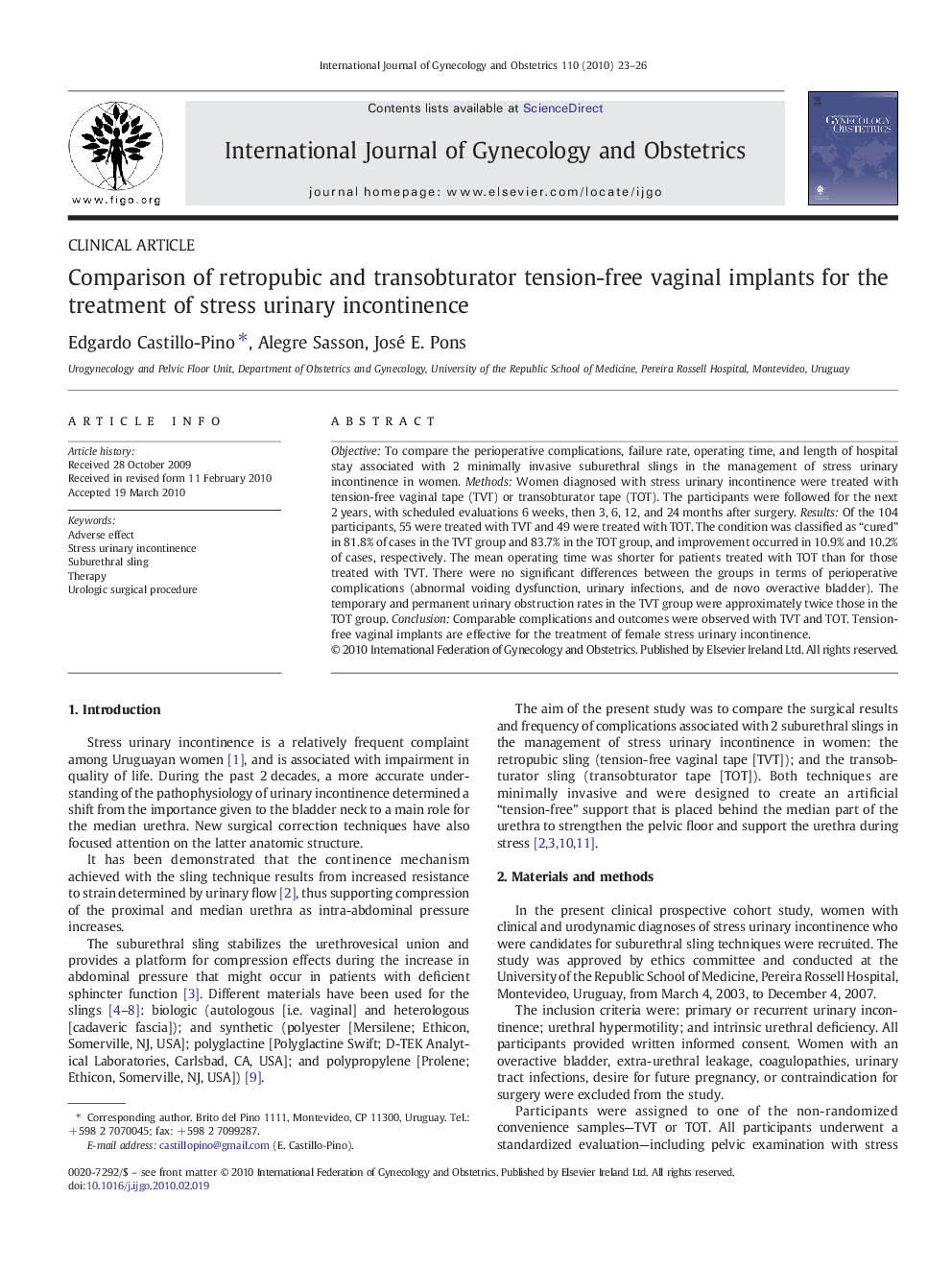| Article ID | Journal | Published Year | Pages | File Type |
|---|---|---|---|---|
| 3951568 | International Journal of Gynecology & Obstetrics | 2010 | 4 Pages |
ObjectiveTo compare the perioperative complications, failure rate, operating time, and length of hospital stay associated with 2 minimally invasive suburethral slings in the management of stress urinary incontinence in women.MethodsWomen diagnosed with stress urinary incontinence were treated with tension-free vaginal tape (TVT) or transobturator tape (TOT). The participants were followed for the next 2 years, with scheduled evaluations 6 weeks, then 3, 6, 12, and 24 months after surgery.ResultsOf the 104 participants, 55 were treated with TVT and 49 were treated with TOT. The condition was classified as “cured” in 81.8% of cases in the TVT group and 83.7% in the TOT group, and improvement occurred in 10.9% and 10.2% of cases, respectively. The mean operating time was shorter for patients treated with TOT than for those treated with TVT. There were no significant differences between the groups in terms of perioperative complications (abnormal voiding dysfunction, urinary infections, and de novo overactive bladder). The temporary and permanent urinary obstruction rates in the TVT group were approximately twice those in the TOT group.ConclusionComparable complications and outcomes were observed with TVT and TOT. Tension-free vaginal implants are effective for the treatment of female stress urinary incontinence.
